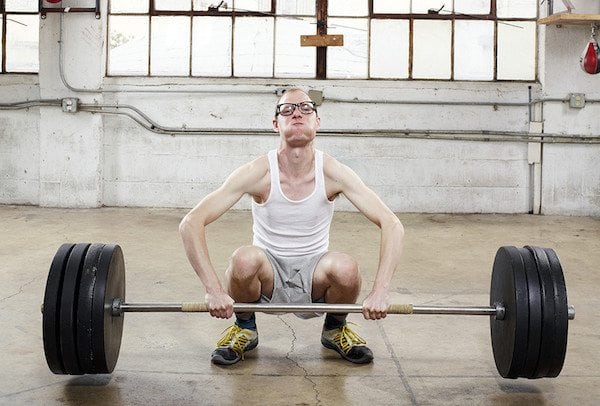No products in the cart.
23 Top Bulking Tips for Muscle & Strength Gains
If you are trying to build muscle you may think that you only need to eat more and train more. Unfortunately, it is a little more complicated than that.
Eating more may help gain muscle, but if you are not careful then you will gain a lot of fat too. This can be difficult to lose and will definitely ruin your whole aesthetic.
Read on to discover some bulking tips (read this guide for a more in-depth look at bulking effectively) that will help you to gain lean muscle with minimum fat gains.
Tip #1: Calories Consumed vs Calories Burnt
Everybody consumes and burns a different amount of calories. To find out your own personal number, you can follow a pretty straight forward formula.
Firstly you need to write down how many hours you typically train in a week. Then add 10 to the number you’re presented with. Next, multiply that by the weight you’re hoping to achieve. Confused? Here’s an example…
A busy person who weighs 200 pounds, wants to lose 10 pounds before the beach season kicks in.
If they manage to count calories properly, they could reach their goal if they trained just 4 hours a week. The formula for this would be 200 x (10 + 4).
Tip #2: Nutritional Breakdown
Protein is by far the most important nutrient you are told to focus on when lifting. It has been recommended for many years that you consume 1 gram of protein for each pound of body weight. What you need to remember is that 1 gram of either protein or carbohydrates has four times the amount of calories.
If you take an example of a 200 pound fairly sedentary lifter, following a strict protein diet would add 800 calories (200 grams protein).
Then you need to add carbohydrates which are another important nutrient to focus on. If the lifter is trying to get rid of body fat, ideally he’d have 1.5 grams of carbs for every pound of body weight.
So 200 x 1.5 would equal 300 grams of carbs. This would add up to a massive 1,200 calories. This leaves only 660 calories a week left for other nutrients.
Now, if you’re looking to bulk up, ideally you want to include around 100 grams of carbohydrates a week. However, you shouldn’t go over 3 grams for every pound of body weight. If you find it doesn’t work, you will need to start increasing the amount of fat you consume.
Tip #3: Don’t Eliminate ‘All’ Fats from your Diet

Many bodybuilders tend to follow a low-fat diet because they feel that ‘all’ fats are their worst dietary enemy and these macros are detrimental to their muscle gains.
Not only is this strategy very bad for your general health but it is also hindering and blocking your muscle-building potential.
If you are eating a ‘dirty’ calorie diet that is high in trans and hydrogenated fats then you are consuming the wrong types of fats. The body can’t break down these types of artificial fats to use them as energy and they tend to be stored as body fat.
If you have high levels of body fat then your muscle tone and definition will be diminished.
On the other hand dietary fats from eggs, meat and oily fish help with the maintenance of hormone levels. The most important hormone for building muscle tissue is testosterone and yours will be very extremely low if you are banishing these key foods from your daily diet.
Saturated fats have received some bad press in terms of being poor for your health. However, recent research has indicated that saturated fats are essential in your diet for energy production, hormone regulation and general cell health in your body.
Foods that are high in good fats tend to have fat-soluble vitamins (A, D, E & K) attached with them. Therefore, if your diet is devoid of these key fats and vitamins then your muscle gains will be further decreased because your body has certain priorities.
One of the body’s main priorities is to maintain a status quo of health/survival. If you are deficient in any macro or vitamins, the body will not embark on the energy-zapping process of building muscle.
The fat-soluble vitamins have the following main functions in relation to building muscle:
- Vitamin A – aids in the division and growth of cells (including muscle tissue)
- Vitamin D -regulation of calcium and phosphorus needed for the proper function of nerves and muscles
- Vitamin E -aids as an anti-oxidant and stops the cell membranes from being destroyed
- Vitamin K – helps with the maintenance of zinc and magnesium. These are important minerals in the function of testosterone
Another key point to consider is that good fats are energy-dense and they help with satiety of foods
If you eat lots of carbs such as bread, grains and low-fat dairy then you are never going to consume enough calories to grow muscle. One tablespoon of oil contains about 125 calories which is good news if you are a hard gainer. However, if you tend to put weight on quickly then keep an eye on your oil intake.
Tip #4: Nutritional Timing
Timing is also important and ideally, you want to spread your protein intake out evenly throughout the day. Think little and often.
Aim to have a minimum of four and a maximum of seven protein-rich meals a day.
The timing of carbohydrate intake is also extremely important. It helps to give you energy so you can work out and also causes your insulin levels to increase.
Obviously, you want to make sure you have plenty of energy to get you through your workout. However, you don’t want to cause your insulin levels to rise too much throughout the day as it could lead to fat gain.
If you tend to train mainly at night, skip the carbs for your first two meals. Then after the workout focus on high glycaemic carbs.
Don’t forget about fats too. However, they tend to slow your digestion down so it is best to consume fat quite a long time before your workout.
Tip #5: Never Fill Up On Junk
The number one misconception when it comes to bulking up is that you should eat as much junk food as you can. After all, if you’re looking to gain weight, there’s no faster way to do it than to eat fatty junk food.
The trouble is, while you may in fact gain weight, it won’t be the type of weight you want to gain. It might add to your waistline, but it won’t help your muscle mass.
In order to bulk up effectively, you need to ensure you are eating whole foods.
Bodybuilders need good sources of protein and carbohydrates. Lean meat is the best source of protein, while rice and potatoes are excellent sources of carbohydrates. If you do it right, you’ll gain the right amount of fat your body needs to bulk up from your protein sources.
Tip #6: Don’t Go Overboard
Another common mistake is to eat as much as you possibly can. A study that was carried out by the American Journal of Clinical Nutrition, found you might not even need to eat any extra food at all.
The study followed obese participants who weight trained and dieted for 90 days. In that time they not only lost 35 pounds, but they also gained a lot of additional muscle mass.
What this means is that it isn’t about how much you eat. What is more important is stimulating the muscles so they expand.
As a general rule, try to eat anything from 14 to 18 calories for every pound you weigh every day. You should also consume 0.4 grams of fat, 2 grams of carbohydrates and 1 or 1.5 grams of protein for every pound.
Tip #7: Eat Clean
You may have heard the term “dirty bulking” before. This is basically when you will eat everything in sight in an attempt to build muscle.
When you undergo a dirty bulk though you will be consuming a lot of foods that will contain bad fats and sugar. This will not only cause fat to be gained but can also be harmful to your overall health.
What I would suggest is a “clean bulk”, whereby you will only eat foods that are considered healthy and will provide you with a healthy amount of protein, carbohydrates and fats.
Some examples of clean foods include:
- Chicken
- Turkey
- Lean beef
- Eggs
- Avocados
- Nuts
- Brown rice
- Whole wheat pasta
- Sweet potatoes
- Kale
- Spinach
- Seeds
Tip #8: Keep Track Of Your Intake

How will you know what effect the foods you are eating are having on your body if you are not keeping track of what you consume?
You should write down exactly what you consume daily and then you can adjust your consumption accordingly depending on your goals.
For example, if you are gaining fat then you will need to look at what is currently in your diet that is causing this.
There are various apps that can help you keep track of your intake, or you can go old-school and use a pen and paper, whatever you find easier.
Tip #9: Get Plenty Of Sleep
If you are training hard in the gym then you will need adequate rest too.
When you sleep your body will recover from those workouts and will also release HGH (Human Growth Hormone) too.
I would suggest that you aim to get at least 7 hours of sleep every night.
Tip #10: Spend More Time Underneath The Bar
When it comes to bulking up, the most important thing is getting the workout in. Getting the training needed and the lifting that is needed in order to break the muscles apart and build them back up stronger than before.
Activate your muscles and make sure that they’re always pumping, always working.
By the end of the day, you should feel sore from the workout that you’ve done.
Make sure that you slowly move the weights up as you progress through each set. Remember that more weight means more mass. Don’t go too overboard as you need to also remember that everyone has a limit. Be patient and results will come.
Tip #11: Not Resting Enough Between Sets

How long you rest between sets can massively affect your overall results. Studies have shown that 3 minutes is the perfect amount of rest time for both strength training and hypertrophy. But most people are still resting for less than a minute between sets!
This is a bad idea. Your muscles won’t be able to recover properly from the last set, so any future set will be compromised.
Take your time and recover from the last set before moving on to the next one. Remember you’re here to build muscle, NOT to lose fat. Save that for the cutting phase.
Tip #12: Not Concentrating On Form
If you want to build mass, most people know that you need to lift heavier weights and that you need to overload the muscles. But that does not mean that your form can go out the window.
If you cannot bench press 100kg properly (bar down to your chest and then back up) then lower the weight!
Do it properly at 90kg or 80kg or whatever you can manage, and then work your way up.
Tip #13: Ignoring Free Weights

While resistance machines have their place, they will never be better than free weight exercises.
Studies have consistently shown free weight exercises to produce more testosterone and growth hormone and to stimulate more muscle fibres than machines.
Don’t be afraid to add a couple of resistance machine exercises into your program, but concentrate on free weights as much as possible.
Tip #14: Ignoring Compound Lifts
Any mass building program needs to have deadlifts, back squats, bench presses, pull-ups (if you can do them), dips, barbell shoulder presses and bent-over rows.
Make sure that you aren’t ignoring these exercises in favour of easier or more enjoyable exercises – because these are the ones that are going to build the most muscle for you.
Tip #15: Not Being Consistent
There is no point in starting a mass building program if you are going to give up after four weeks. Nor is there any point if halfway through you get worried about gaining fat and decide to switch to a cutting phase.
Plan out your program beforehand, make it between eight and twelve weeks, and follow that program.
Tip #16: Give It Time
If you are expecting to gain 10 pounds of muscle in a month then you are probably going to be disappointed.
The truth is the muscle growth is a slow process that can take a long time.
When undergoing a bulk, especially a clean bulk then you need to allow yourself at least 6 months to see any difference.
Instead of simply quitting if you do not see the results, perhaps you should try to see why you have not seen the results you were expecting.
Tip #17: Keep Track Of Your Progress
If you don’t track your progress how will you know what you are doing is effective?
You should avoid weighing yourself daily as your weight will fluctuate, although you should weigh weekly. The aim is to gain around a half to a pound in weight each week.
You need to measure your weight, you need to get a tape measure and check your waist size, chest size, arms, and legs. The reason you are doing this is so that you can see your weekly progress.
You need to be measuring calories in and calories out. Ideally, you want to be weighing your food too!
If you’re not doing this then you will not get the desired outcome. If this sounds like too much work, then congratulations on being sane! But you’ll never be a bodybuilder.
In all honesty, doing these measurements is crucial, but isn’t half as difficult as it will at first appear. Taking the measurements needs to be done once per week, and should be done first thing in the morning.
Tracking your food in a calorie counting app is also a relatively easy job, especially once you get used to doing so.
There are many ways to streamline this, and compared to the time spent training and the time you spend preparing and cooking your food, measuring is pretty minor.
Doing this will really help put you in control of your diet. When you see that you’re not losing weight fast enough (if that’s your current goal) then you can alter your calories. Without measurement, this would all be done by guesswork, which is incredibly unreliable.
Taking photos of your weekly progress will also help you see how things are changing.
Doing all this will ensure you have the best bodybuilding diet that you could hope for.
If you are not seeing the increase that you would expect then it is time to review what you are eating and how you work out.
Tip #18: Don’t Overdo The Cardio

Too much cardio will be bad news for anyone on a bulk. However, to limit the amount of fat you gain while bulking then cardio will be important.
You could either perform low-intensity steady-state cardio, which will usually involve using a treadmill or similar machine and using a low to moderate intensity, you could perform HIIT.
HIIT or High-Intensity Interval Training will involve you working out using 100% intensity for a short period of time, with minimal breaks for rest.
I would stick to only 2 cardio sessions per week, and to never perform the cardio on the same days as your weight training.
Tip #19: Supplement Appropriately
There are certain supplements that you can use that can boost your bulking results. The problem is finding out which are the best to use for your goals.
My suggestion to you would be to stick to the following supplements:
- Pre-workout: To help give you an energy boost during the workout so that you can perform at 100%
- Creatine: Can help with your fast-twitch muscle fibres, allowing you to perform those intense, short lifts with more power
- Whey protein: An essential supplement that can help boost your protein intake. Helping to provide your body with the nutrients it needs to recover and heal those muscle fibres
Tip #20: Mix Up Those Workouts
While it is important to stick to a routine when working out, for example going a certain number of times per week.
What is more important for bulking though is to avoid the same workout each time you visit the gym.
If you want to build muscle and strength then you need to constantly try to surprise your muscles. If you don’t then you will find that your gains will plateau.
I would suggest not only trying new exercises occasionally but also different weights and numbers of reps. Perhaps incorporating drop sets or supersets into your workout will work too.
Tip #21: Know When To Stop
No matter how healthily you are eating, if you bulk up for too long, you will start to gain a lot of excess fat.
Once you reach around 15% body fat, your insulin sensitivity levels tend to decline at a rather rapid rate. Therefore if you carry on bulking up, you will start to gain weight quickly. You will notice once your body fat reaches around 10%, your abs will start to gradually disappear. This is when it is time to quit.
Tip #22: Give Yourself A Rest

Sometimes you will find that you are a little tired and in need of a rest. Perhaps because you have had a few tough weeks at the gym.
If this occurs then rather than skipping the gym altogether, you should do a ‘de-load’ week. This is where you will perform your usual workout routine but at only 40-60% of your usual weight.
This de-load will allow you to rest without missing the gym entirely.
Tip #23: Be Realistic With Your Goals
Let’s be realistic shall we, if you are expecting to look like Arnie after 6 months of training then you are going to be disappointed.
Gaining muscle is a long process that can take years to achieve a physique anywhere near our heroes.
Of course, be inspired by these guys and gals. Just remember that they have had to work hard to achieve their goals and they most certainly did not achieve their bodies overnight.

What about diet? Looking for help on what to eat to gain muscle. Thanks.
I would suggest that you read this article. 🙂
Thanks for these tips. I know they are simple, but sometimes you just need a little reminder.